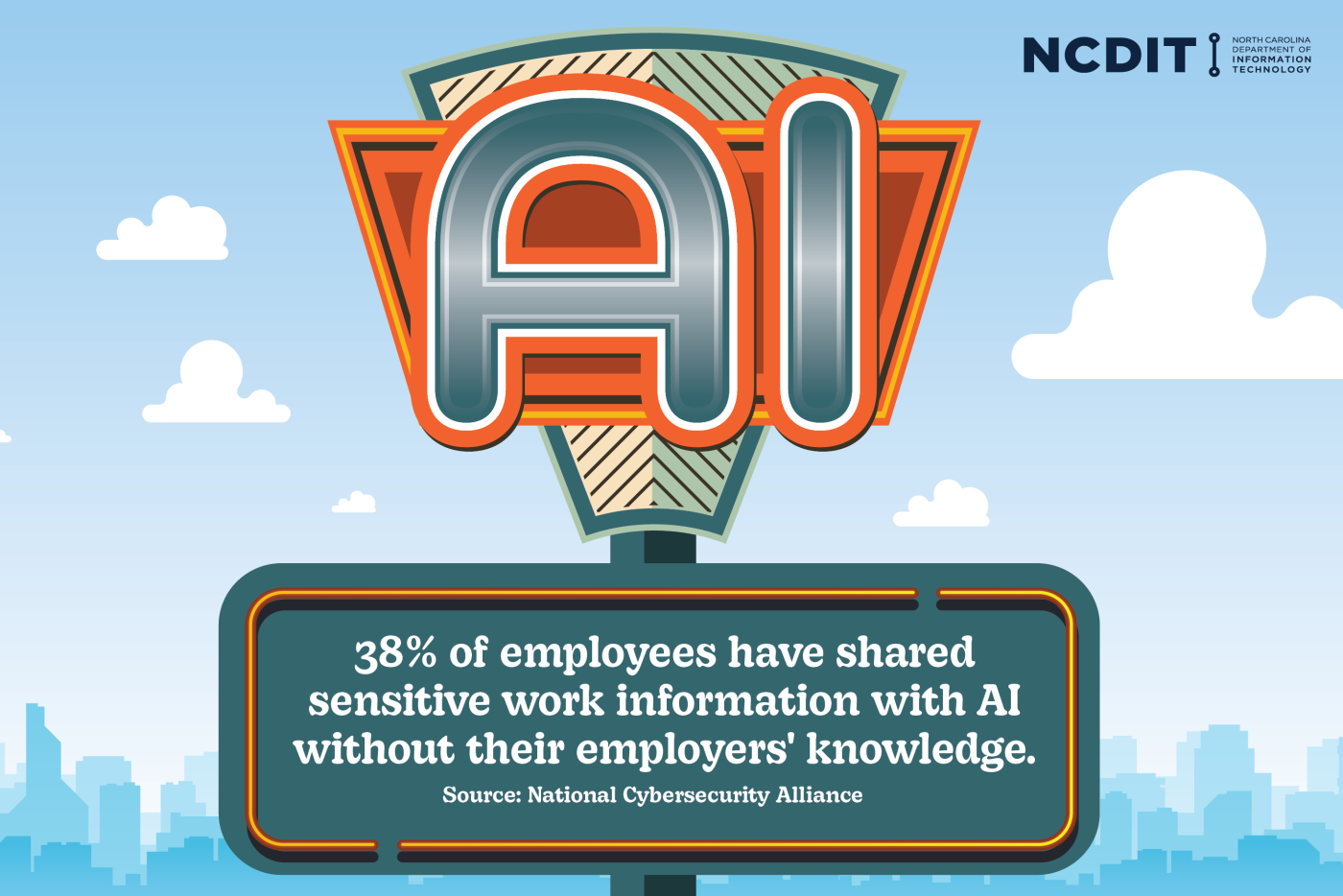Artificial intelligence is a powerful tool that can help save you time on everyday tasks you encounter in your daily work. But like any productivity tool, it is important to understand how to use it responsibly – especially when it comes to privacy and protecting state data.
When you use publicly available generative AI tools, the information you share doesn’t always stay between you and the tool. In many cases, it is sent to the provider’s servers and can be stored, reviewed or used to train AI models.
Here are some do’s and don’ts for using generative AI – whether in the office or at home.
AI Do’s
- Do think of AI as your personal assistant. Let it help you quickly summarize documents, draft emails, jumpstart ideas and save time on routine tasks.
- Do only use approved AI tools. At NCDIT, all employees use Copilot through their Microsoft 365 user account. Easily access Copilot in Microsoft Teams.
- Do be mindful about what you share. Keep confidential and personal information private. Only provide information you would not mind being made public.
- Do remember, it’s not perfect. AI is a powerful tool, but it’s not a replacement for you. Check for mistakes and bias before you share it with others.
AI Don’ts
- Don’t be afraid of AI. It’s another productivity tool that can help save you time and inspire you.
- Don’t forget to make it your own. Let AI help you with drafts and ideas, but make sure the final product is reflective of you, your voice and your judgment.
- Don’t ignore the risks. Stay curious but informed about AI and new tools. If you want to explore them in your personal life, do research before trying them out.
- Don’t stop learning. AI technology is rapidly changing how we work. Take advantage of training resources, and talk with coworkers about how they are using it.
Now that you know the do’s and don’t of using AI, understanding how to use it responsibly helps you have the correct impact. To ensure responsible use of AI, NCDIT has adopted seven guiding principles for the responsible use of AI:
- Human-centered, human oversight
- Transparency and explainability
- Security and resiliency
- Data privacy and governance
- Diversity, non-discrimination and fairness
- Auditing and accountability
- Workforce empowerment
To explore more about these seven principles, check out our Principles for Responsible Use of AI.

